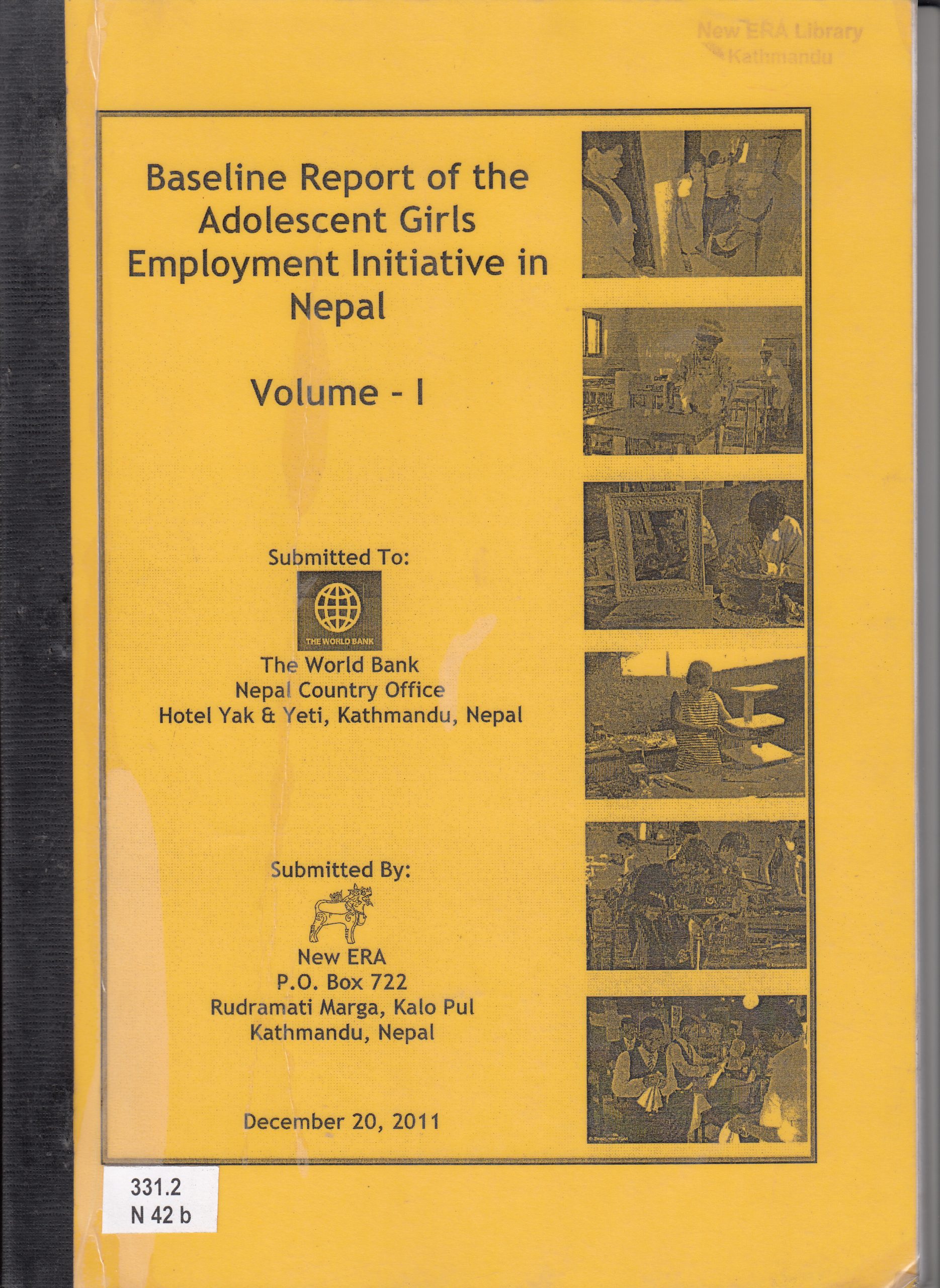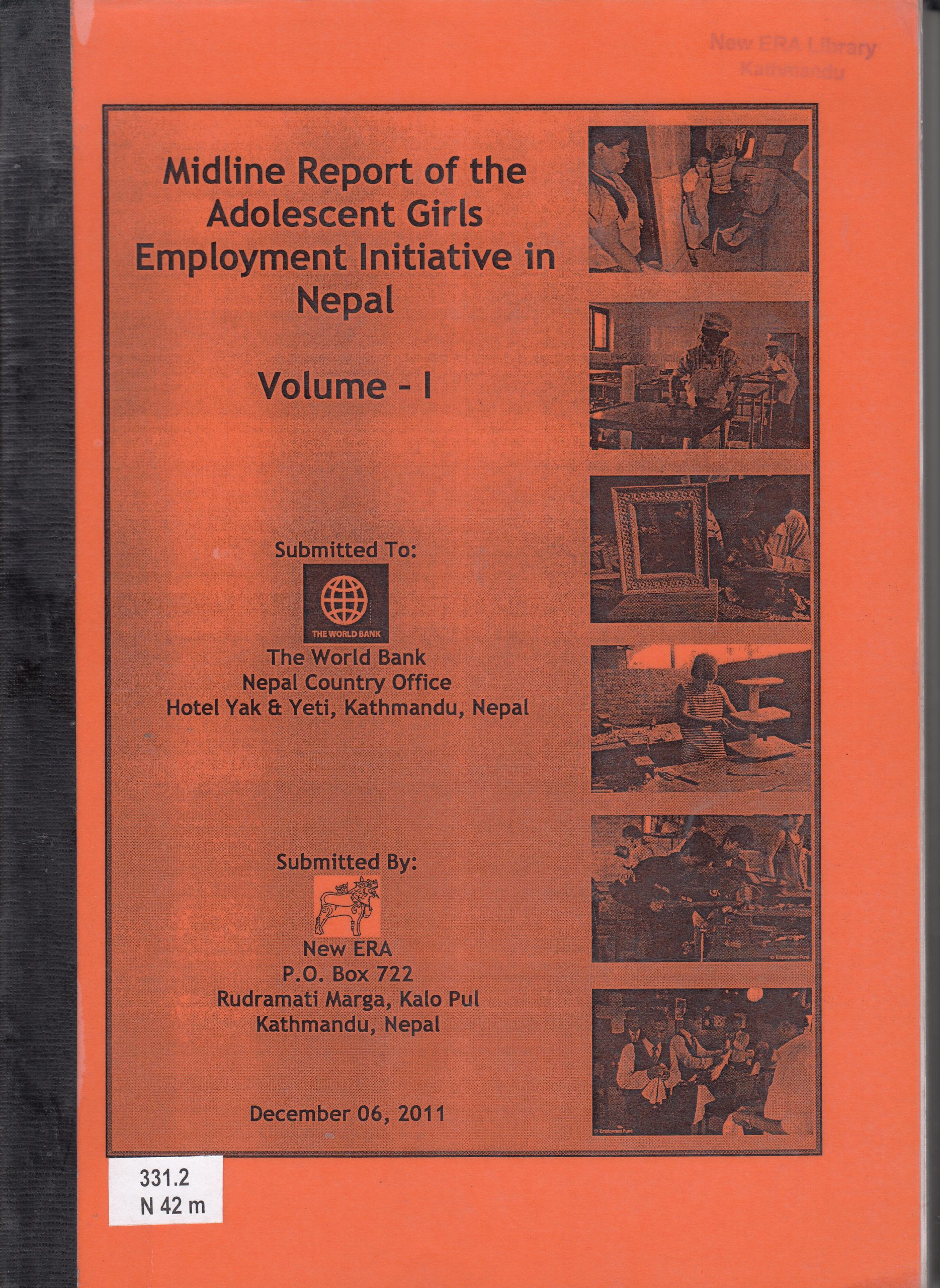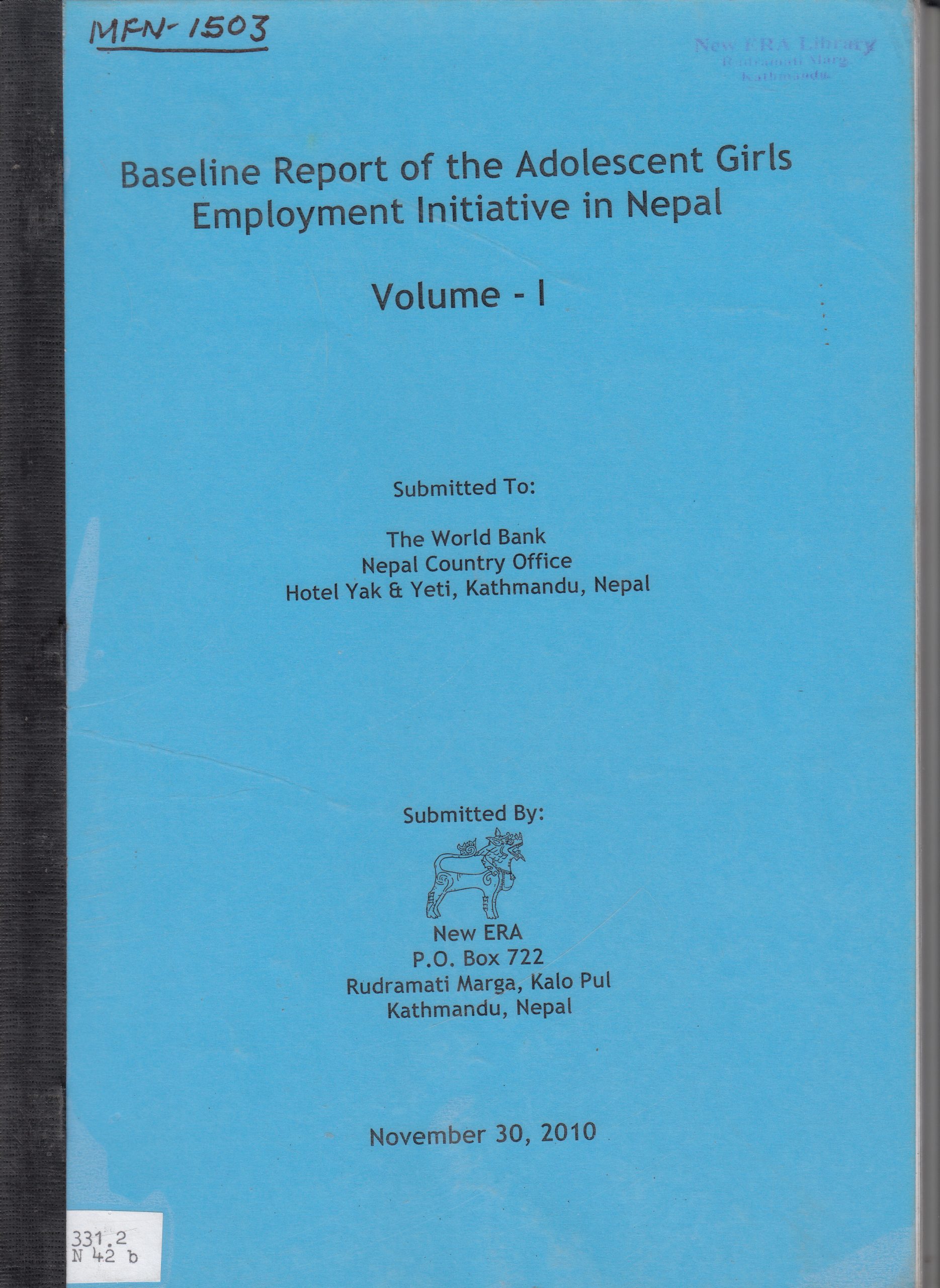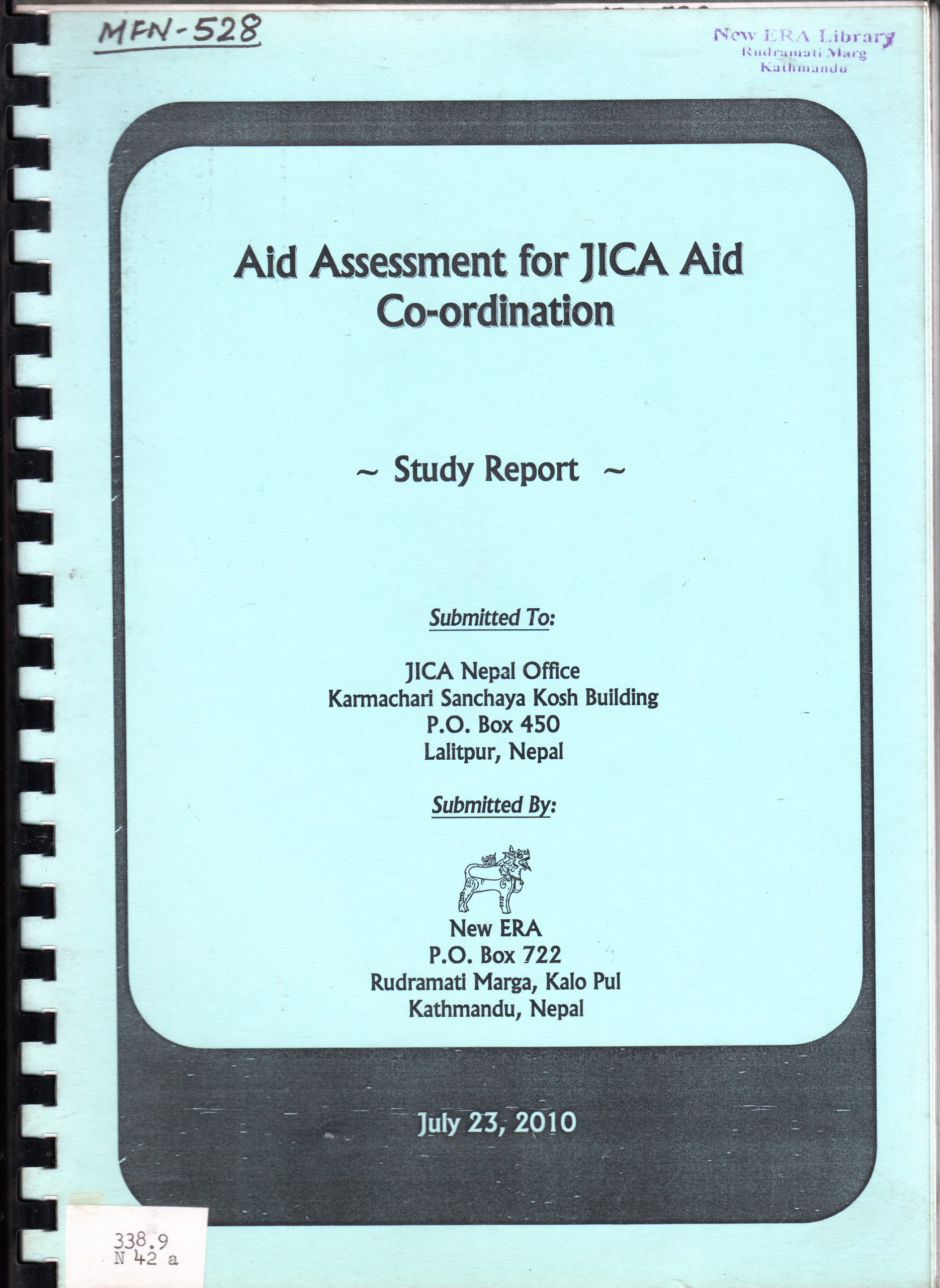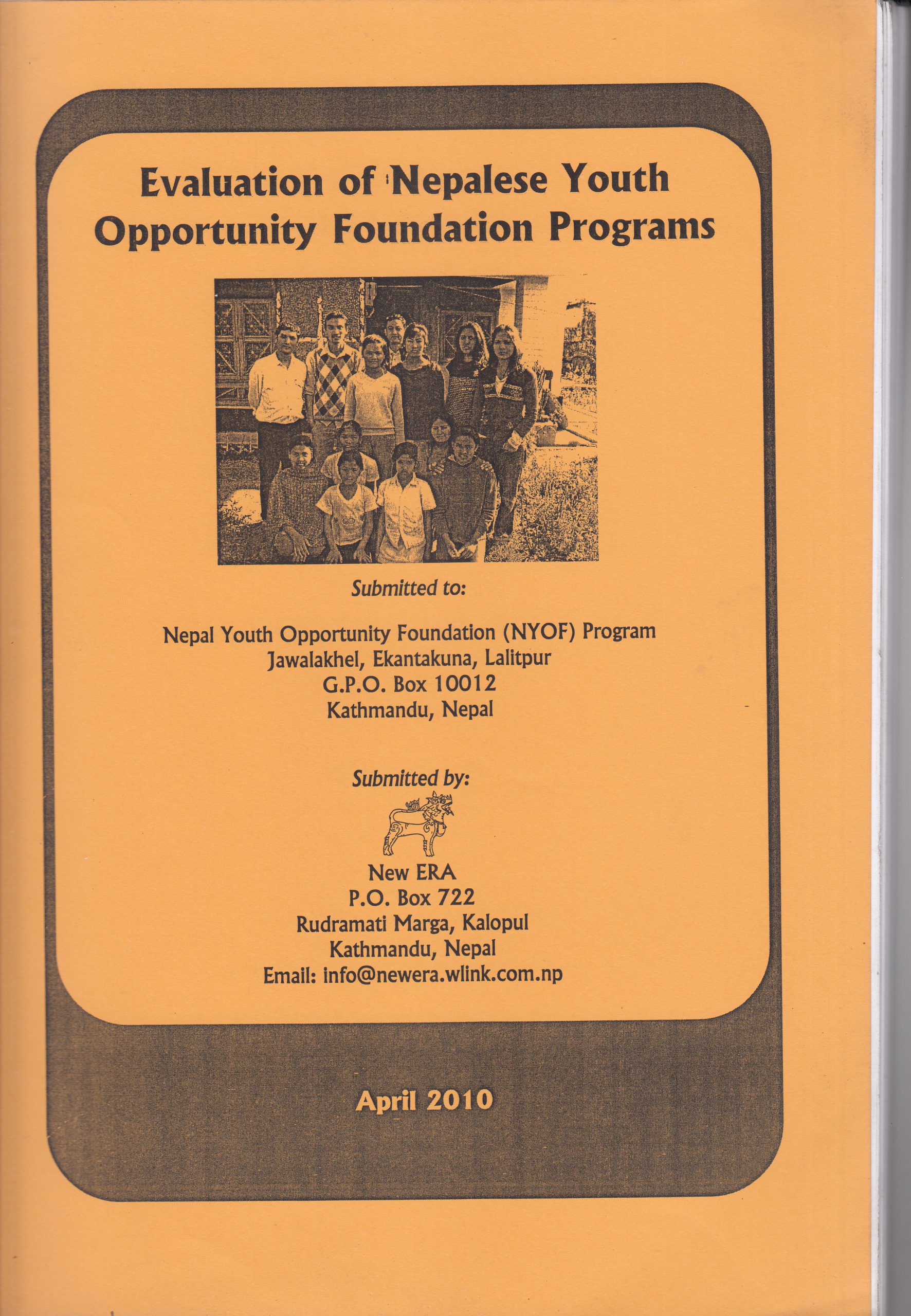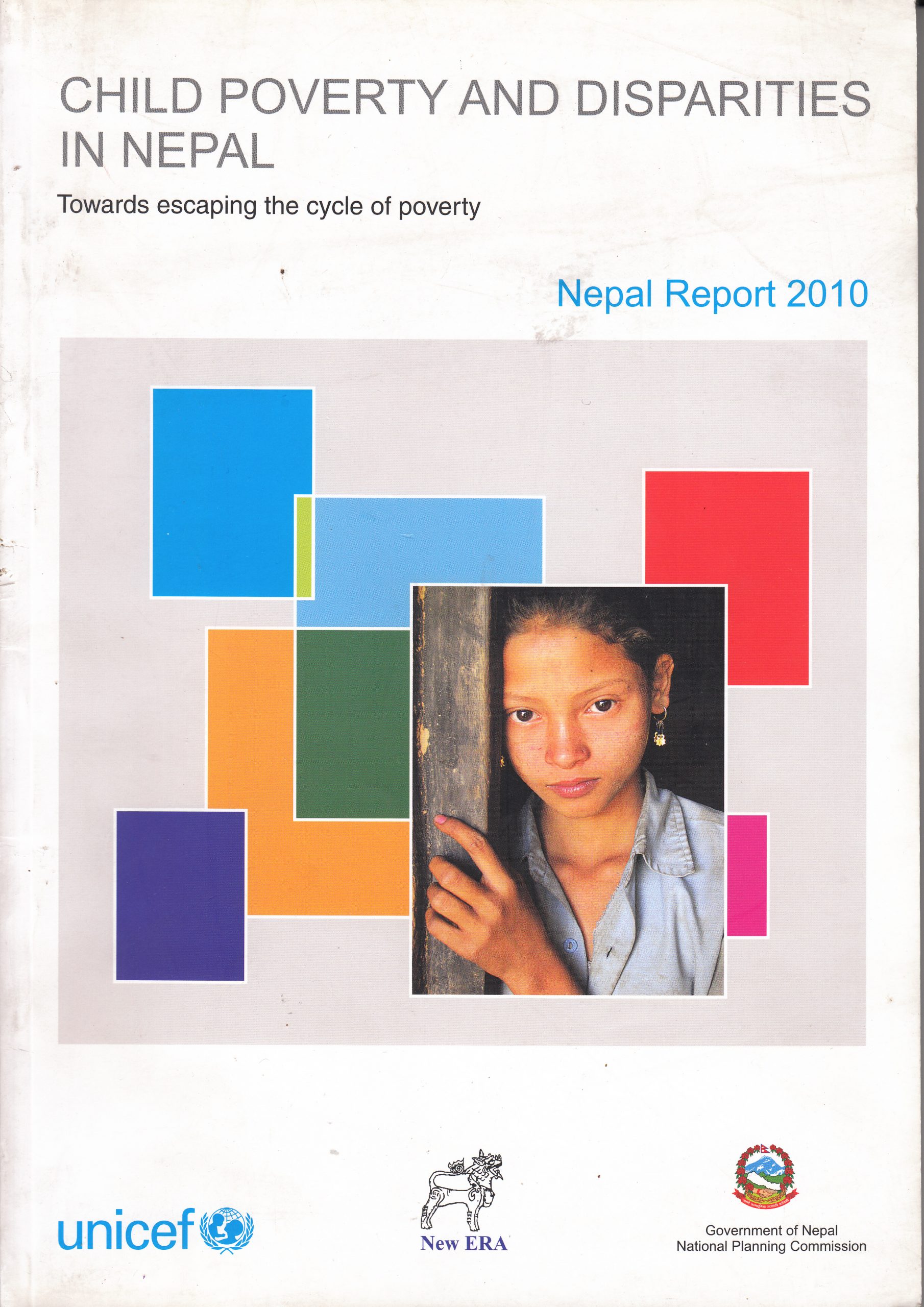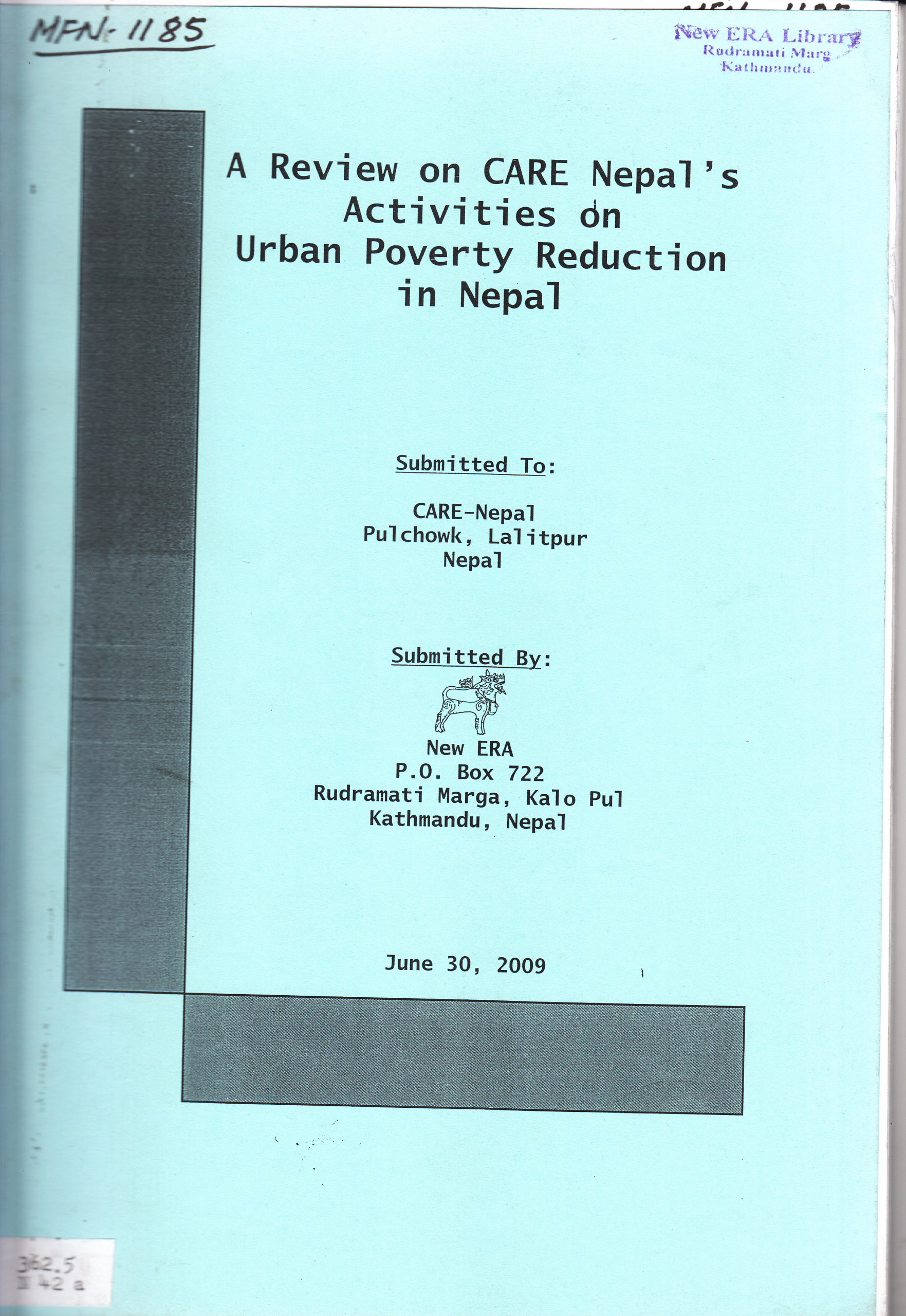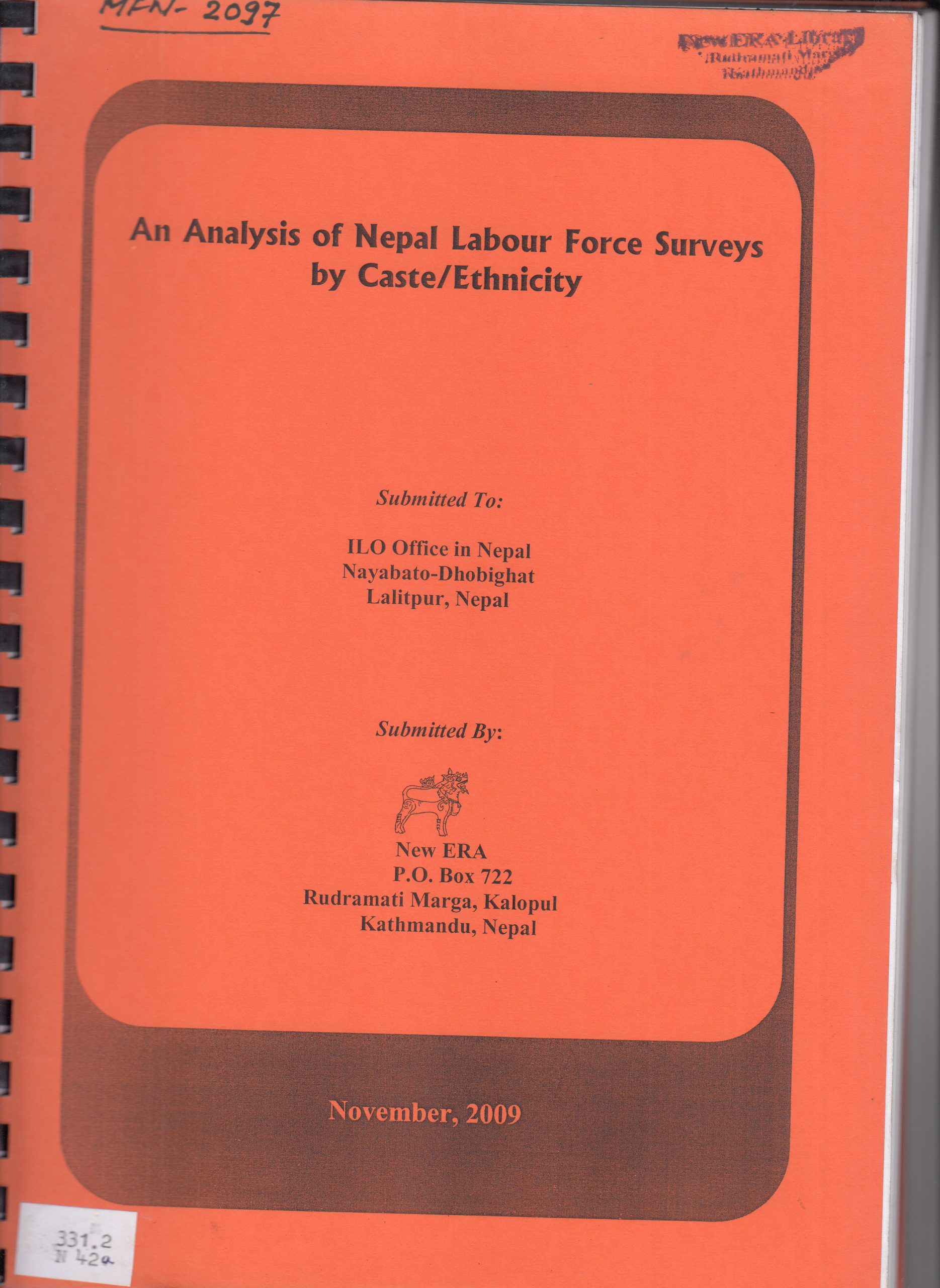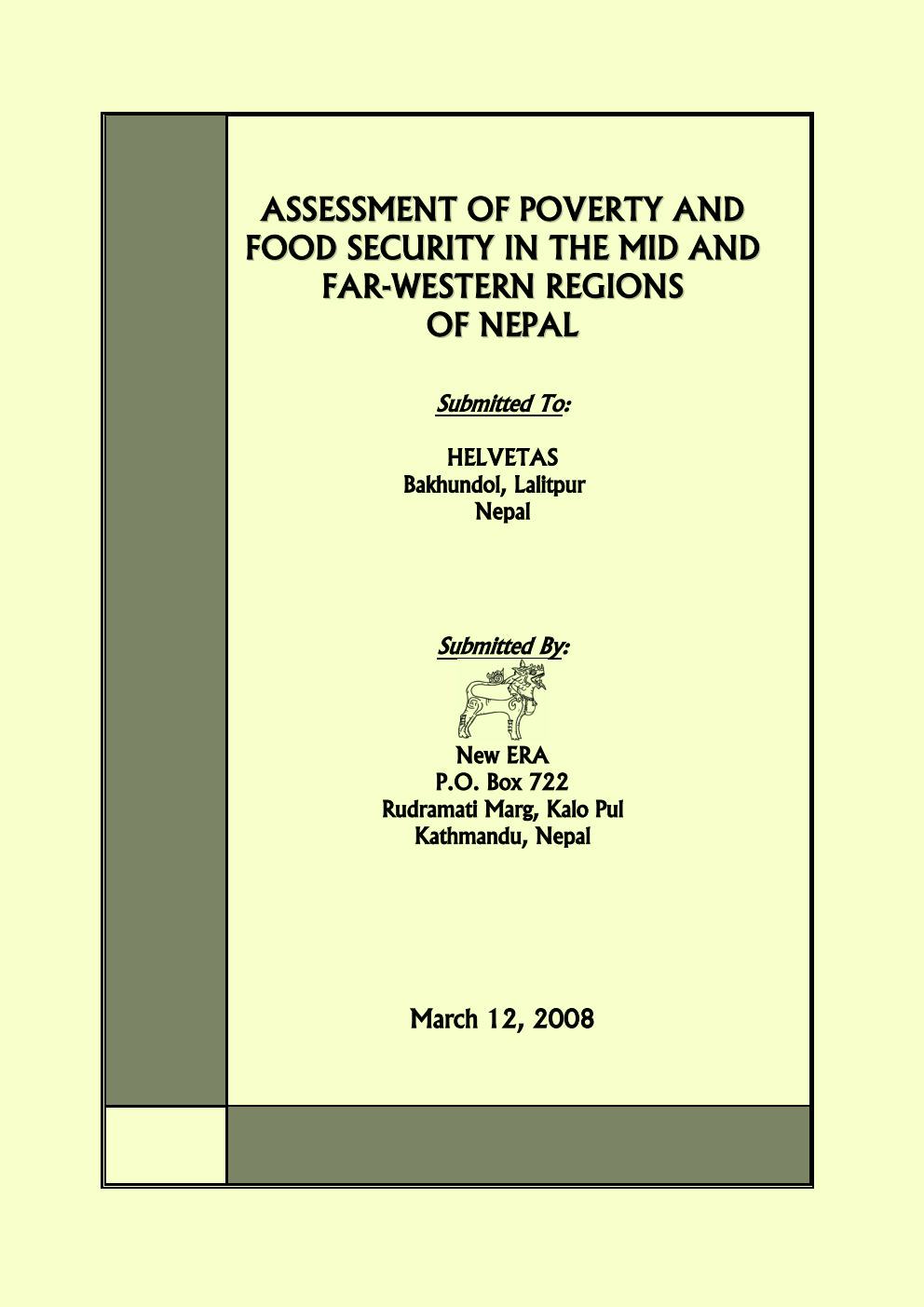This Baseline Survey of AGEI 2011 was designed to establish benchmark characteristics of individuals and households of trainees of 2011. The study assesses education status, income generating activities, migration, entrepreneurship knowledge and risky behaviors, demographic and socio-economic characteristics of individuals and their respective households. The study also assesses household income and expenditure, assets ownership, food security status, gender empowerment, alcohol consumption, and health and hygiene awareness among respondents. The study compared pre and post intervention performance on different indicators in the treatment and control groups.
Report Type: Economic Development
Midline Survey of the Adolescent Girls Employment Initiative (AGEI) in Nepal 2011
This study was to provide follow-up information on individuals and households characteristics that were surveyed for AGEI Baseline 2010. The information on demographic, social and economic characteristics of individuals and their household was collected by tracking the same individuals and households those were sampled during the Baseline. The data on migration status of household members, education, remittance, gender perceptions on empowerment, income and expenditures, awareness about health and hygiene were collected among men and women age of 16-35 years who participated in training. The survey has compared different indicators of performance for treatment and control groups.
Public Expenditures Tracking Survey (PETS)
Public Expenditure Tracking Survey (PETS) was conducted with assistance from Adam Smith international (ASI),funded by DFID in order to identify and address problems and weaknesses in systems of public expenditures, transfer and service delivery so as to help the government ensure that allocated public resources effectively reach their intended beneficiaries. PETS also sought to reveal corruption/misutilization of funds and detect the exact location of leakages. The survey data were obtained employing both quantitative and qualitative methodologies.
Baseline Survey of the Adolescent Girls Employment Initiative in Nepal
The Adolescent Girls Employment Initiative (AGEI) program was launched by World Bank with support of Nike Foundation, the government of Sweden, Norway and the United Kingdom and Denmark to uplift the economic empowerment of adolescent girls and young women in five low-income and post conflict countries (Afghanistan, Liberia, Nepal, Rwanda, and South Sudan). The objectives of the projects was to offer training and mentorship to facilitate young women’s transition to work and share a number of common characteristics, including modest budgets, designs to sustainable increase women’s economic participation in the country. This survey was to obtain baseline indicator at the individual and household level comparing the young adolescents participating in the treatment and those in the control group. The study was collected the information on demographic, social and economic characteristics of individual adolescents and household, education status, income and expenditure, financial knowledge, knowledge of entrepreneurship, gender empowerment, risk taking behaviors, and health and hygiene awareness among the respondents.
Aid Assessment for JICA Aid Coordination – Study Report
The external assistance plays a vital role in the development of Nepal. About 60 percent of the development programs are being financed by external assistance. Japan is the must important financial donor of Nepal. This study was being carried out to review the development assistance provided by Japan International Cooperation Agency (JICA) to Nepal during 2000s. The study analyzed the aid policy, strategy, general trends, modalities, and sectoral distribution of program approaches of the largest development partner agencies such as JICA, The World Bank, ADB, DFID, GTZ, SDC, DANIDA, UNDP, in besides the neighboring countries China and India.
Evaluation of Nepalese Youth Opportunity Foundation Programs
NYOF was founding with aiming to support Nepalese student scholarship. Later on it vanguard of the movement to eradicate the bonded girls system, which is the worst form of child labour practiced in far-western terai districts of Nepal. It is also devoted to bringing hope to the most destitute children of Nepal and providing education, housing, nutrition, medical care and so on. The programs are running in 30 districts of Nepal. This study was commissioned to evaluate the progress and achievement of the past activities of the program. The study assesses the over all performance, project costs and management structure. Based on the result the study identified lessons learned for guiding future activities. This study was carried out from six sampled districts namely Kanchanpur, Kailali, Bardiya, Banke, Dang, Nuwakot and Kathmandu Valley.
Child Poverty and Disparities in Nepal
This study upholds in achieving the Millennium Development Goals (MDGs) which mark an international commitment to eradicate extreme poverty and hunger and to foster global collaboration for development. As part of this effort, this study was carried out in 40 countries and seven regions in 2007-2008 with UNICEF support. The study proposes a comprehensive approach that focuses on poverty through a progressively specific analytical lens. First, the study looks at gaps and opportunities in national poverty reduction strategies, including the demographic and economic context, employment, public and private social expenditures, fiscal space and foreign aid. Second, the study focuses on the poverty and disadvantages faced by families with children – a crucial agenda to address.
A Review on CARE Nepal’s Activities on Urban Poverty Reduction in Nepal
Urban Development Project 2006-2008 was initiated CARE Nepal with objective to develop innovative ways of engaging and influencing on urban poverty reduction issues; increase knowledge base and strengthen skill and capacity of CARE Nepal staff and partners institutions; participate in deepening the understanding of urban poverty; and enhanced learning through the strategic agreement with regard to issues of women and youth. This study reviewed the strategies, experiences and activities of CARE Nepal under the project. The study had also recommended promoting vocational training components in their program to address the issues of unemployed, high school drop out youths and dependent family members of the squatter and slum communities.
An Analysis of Nepal Labor Force Surveys by Caste/Ethnicity
This study made a trend analysis of four representative national level surveys: Nepal Living Standard Survey 1993/94; Nepal Labor Force Survey 1998/99; Nepal Living Standard Survey 2003/04; and Nepal Labor Force Survey 2008. More specifically, the study analyses economic activity, employment pattern, absentee labour force, remittance inflow, unemployment and labour force characteristics from the caste/ethnicity perspective. The study also analyses the changes in these characteristics over the survey period.
Assessment of Poverty and Food Security in the Mid and Far-Western Regions of Nepal
Linking Local Initiatives to New Know-how (LLINK) – a new development approach of Helvetas/Nepal has started from 1997 in four districts namely Dailekh, Achham, Doti and Jajarkot of mid and far-west development regions of Nepal with aim to address the poverty and food in-sufficiency issues. This study was assesses the contribution of LLINK program in two districts out of four program districts to increase food security of Small farmers, landless,
Occupational and women (SLOW). The study learnt the multi dimensional impact of the program that the agricultural productivity increasing; livelihoods of the people have been improving through the sale of agricultural commodities; earnings from employment obtained after skills training; appraise the contribution of LLINK program
to reduce distress migration to the working communities



